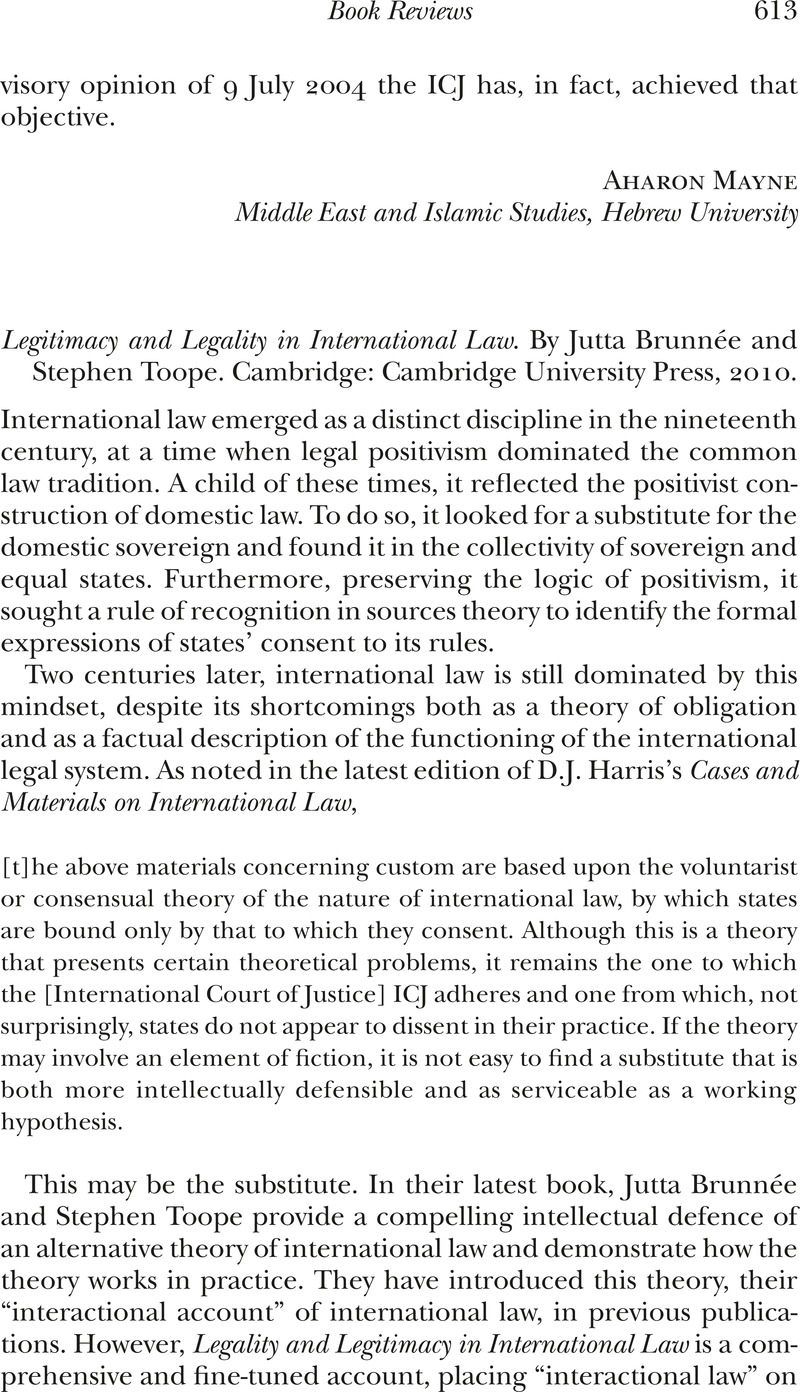No CrossRef data available.
Article contents
Legitimacy and Legality in International Law. By Jutta Brunnée and Stephen Toope. Cambridge: Cambridge University Press, 2010.
Published online by Cambridge University Press: 09 March 2016
Abstract

- Type
- Book Reviews / Recensions de livres
- Information
- Canadian Yearbook of International Law/Annuaire canadien de droit international , Volume 48 , 2011 , pp. 613 - 619
- Copyright
- Copyright © The Canadian Council on International Law / Conseil Canadien de Droit International, representing the Board of Editors, Canadian Yearbook of International Law / Comité de Rédaction, Annuaire Canadien de Droit International 2011
References
1 Brunnée, Jutta and Toope, Stephen Legitimacy and Legality in International Law (Cambridge: Cambridge University Press, 2010) at 80.CrossRefGoogle Scholar
2 Ibid at 24.
3 Ibid at 64.
4 Ibid at 63.
5 Ibid at 62.
6 Ibid at 63.
7 Ibid at 26 (paraphrasing Fuller, Lon The Morality of Law, revised edition (New Haven, CT: Yale University Press, 1965) at 39.Google Scholar
8 Brunnée and Toope, supra note 1 at 38–39, 352.
9 Ibid at 352.
10 Ibid at 53.
11 Ibid at 29ff.
12 Ibid at 29–30.
13 Ibid at 53.
14 Ibid at 77.
15 Ibid at 26–27.
16 Ibid at 27.
17 Ibid at 283.
18 See Koskenniemi, Martti From Apology to Utopia: The Structure of International Legal Argument, reprint with new epilogue (Cambridge: Cambridge University Press, 2005)Google Scholar. Koskenniemi famously explained that each element of custom — that is, practice and opinio juris — can be found only by reference to the other element, making the entire definition of customary international law self-referential and indeterminate.
19 Jennings, Robert in Cheng, Bin ed, International Law: Teaching and Practice (London: Stevens, 1982) at 5.Google Scholar
20 Brunnée and Toope, supra note 1 at 21.
21 Ibid at 352.Brunnée and Toope’s treatment of the term “practice of legality” is depicted as an ongoing project by which shared understandings can be “expanded” and “embedded” in legal practice — a use of the term that recognizes that such a practice is needed through all of the stages of the development of a norm.
22 Ibid at 47. Indeed, Brunnée and Toope see opinio juris as a form of entrenched practice.
23 Ibid at 6.
24 Ibid at 355.


